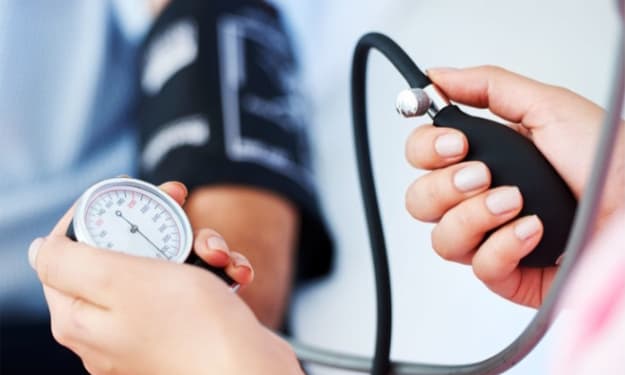Panic Attack : Not a disease but a symptom
Panic attack


At noon a concerned relative of mine called. He said on the phone that his wife was not answering the phone for two hours, also did not go to the office and was alone at home. A few houses later, my relative's house, so I ran immediately. After ringing the bell seventeen times, he slammed the door open. I then took him to bed. I saw there was an ongoing call on his phone, although he was not in a position to speak. There was a psychologist on the other end of the phone. I grabbed his phone anxiously. The psychologist said, “Did you made him lie down? Check the pulse this time and then give water. Then ask for a splash of water in his eyes and mouth." The pulse was fairly normal. I fed him water. He came out of the bathroom and said he was feeling a little better. He needs rest for now, so sleep. At that time I was very young, I never saw such danger. Later I heard that the name of the disease is panic attack.
Extreme attacks of Fear ?
Panic attack, in a word, that is what it means. This attack can happen suddenly even if there is no cause before or after. That is, sudden anxiety or fear arises without understanding. The result is palpitations, untimely sweating, trembling of hands and feet, chest pain, nausea, dizziness, etc. With the change of thought- the fear of losing control over oneself or the thought of death. There can be various reasons for this. For example, the experience of a previous natural disaster, or the death of a loved one in front of the eyes. These become functional inside. A lot of times, even seeing horrible incidents face to face can lead to an attack. Again, those who are afraid of social situations such as giving speeches on stage or socializing at events, may be in that special case. In this case, just as anxiety and panic suddenly rise to a climax, it subsides in two to ten minutes. That is why many psychiatrists want to see panic attack identification as a 'Diagnostic Marker'. Since most of the symptoms are physical, the first step is to rule out the possibility of other serious illnesses. One has to understand at the outset whether the special event is a panic attack or not. When it is understood that it is not a heart problem (the symptoms of the two are very close), thyroid (this hormone can cause palpitations if increased in the body), infection, etc., then the treatment can be started. Social Anxiety Disorder or Post-Traumatic Stress Disorder, even from daily stress can lead to this severe panic attack. It is important to note this in the patient's medical history. If the panic attack is recurrent, and is situational, it can create a cycle. That is, if there is an attack on a particular place there is a risk of it happening again, and from that comes the tendency to avoid. Anticipatory anxiety from attack and avoidance. Panic disorder in all three.
Is it really for no reason ?
May or may not be. Some avoid the crowded bus, some go out alone. But such experience does not work in all cases. In most cases, however, panic disorder is associated with an illness. For example, 50-60 percent of patients with depression are more likely to have this disorder. People with other anxiety disorders (such as phobias) are more likely to have anxiety disorders. It is associated with serious illnesses such as schizophrenia or bipolar disorder. If someone has an illness like substance abuse, the risk of panic attacks increases. On the other hand, irritable bowel syndrome, asthma, shortness of breath, heart problems may increase the risk of this attack. It's not a disease, it's a symptom. There can be many causes of a fever such as common cold, Covid, malaria, dengue etc. Here also the source of the disease has to be found after identifying the panic attack. It is actually an associative disorder.
What is the way to recovery ?
The treatment of this disease is mainly psychological. It has two sides. The first is the behavioral component. In order to reduce the fear of presumption or fear of avoidance, the subject is gradually introduced to what is known as ‘Graded Exposure’ or ‘Systematic Desensitization’ to reduce the fear of presumption or avoidance.
For example, if someone is afraid of getting into a lift and has a repeated panic attack, he is first taken to the lift, the next time he is put inside, then the door is opened and closed, and at the end he is made to go upstairs one by one. Along with this, methods like exercise and muscle relaxation are also effective. The second is the cognitive component. The practice of changing the thought process to eliminate negative thoughts is important here. Some relaxation techniques are also effective here. That is why the doctors say that it is a way to change the lifestyle or reduce the stress. As well as of course allied disease medications are needed. Whatever the cause of the panic attack, it is necessary to treat it, as well as the things that are happening as a result, so that the overall recovery will be done. However, emergency medications are needed during an attack, which are usually ‘mouth dissolving’. As a result, the final anxiety of the time is reduced, the patient is relieved. There is no benefit in counseling at this time. Then the pain needs to be relieved, so the frequency of the medication may need to be kept higher at first and then gradually reduced. Again, if there is a long-term problem like anxiety or danger in social situation, it is treated according to its character. If there is depression then early treatment with antidepressant then other physical problems are seen. Just as panic attacks can turn into a three-stage disorder, there are three parts to treating it — Environmental change, Psychological, and Pharmacological. It is possible to get well if you follow it properly.






Comments
There are no comments for this story
Be the first to respond and start the conversation.